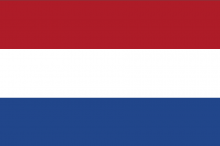Elsevier Netherlands agreement 'major breakthrough for open science'

A group of research institutions in the Netherlands has reached an agreement with Elsevier that is being hailed as a 'major breakthrough for open science'.
The Association of Universities in the Netherlands (VSNU), The Netherlands Federation of University Medical Centres (NFU), The Dutch Research Council (NWO) have agreed a framework that provides Dutch researchers with full reading access to all Elsevier journals, and allows unlimited open access publishing in Elsevier journals. In addition, a range of pilots will be undertaken to develop tools and services in support of open science and research intelligence.
NWO President Stan Gielen said: 'This agreement is in accordance with Plan S and is a huge step towards 100% open access and therefore a major breakthrough for open science in the Netherlands.
'Overall it means that Dutch research institutions and Elsevier will embark on a new and innovative approach to scientific research, making it more transparent, collaborative, efficient, and in support of social issues and questions.'
VSNU’s chief negotiator Tim van der Hagen added: 'This is the beginning of a new way of working for science. We will be in the driving seat of what’s important for science in the future and the applicable rules of engagement and services needed in this context.'
The framework agreement has a transition period from January 1 through May 1, 2020.
VSNU, NFU, NWO and Elsevier have acknowledged that the development of these new services has been a cause for some concerns in the community. To address this, an initial set of clear principles have been agreed to by the partner organisations. These are:
- Interoperable: no vendor lock in. Researchers and institutions can also use their own tools;
- Future proof: system should be flexible to different setups and different agreements;
- Vendor/publisher neutral: system development is not limited to any specific vendor; and
- Researchers and/or institutions own their own research data (not Elsevier).
In the coming months, a working group will further define the rules of engagement and the governance structure will be worked out. The parties have agreed a memorandum of understanding to provide continued and expanded access to the reading and publishing services of the agreement. If the parties reach a final agreement, the contract will be made publicly available and registered on the ESAC-registry.
Gino Ussi, executive vice president at Elsevier, said: 'This MoU marks an important step towards achieving Dutch research and open science ambitions, and further solidifying the Netherlands’ standing as an innovative leader in the international research community.
'This announcement has been a long time in the making, meaning four partners in research have taken time and allowed one another to explore the opportunities and perimeters of this new and unique collaboration. We look forward to formalising the agreement with our trusted partners in the early months of 2020.'










